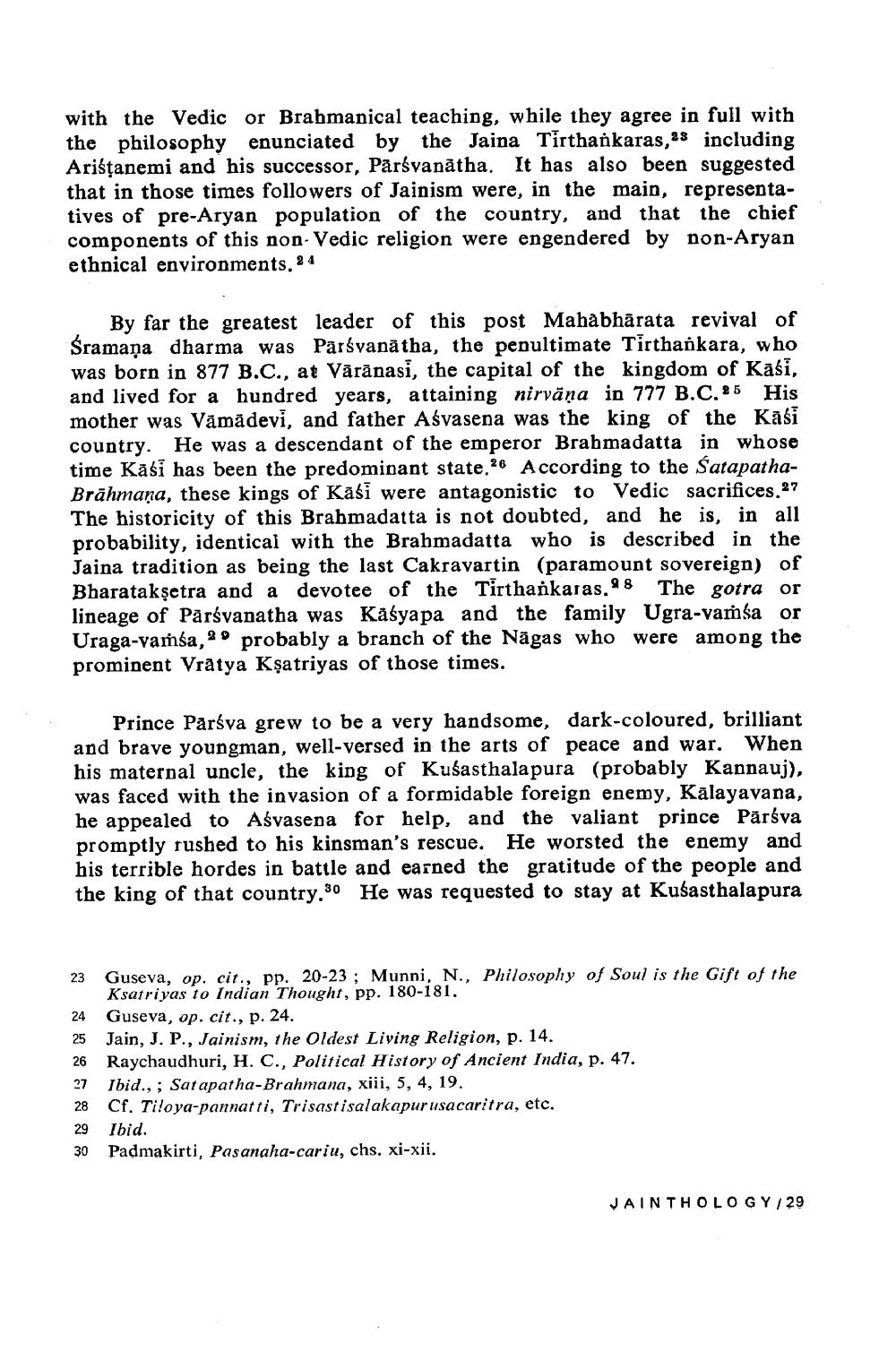________________
with the Vedic or Brahmanical teaching, while they agree in full with the philosophy enunciated by the Jaina Tirthankaras, 23 including Aristanemi and his successor, Parsvanātha. It has also been suggested that in those times followers of Jainism were, in the main, representatives of pre-Aryan population of the country, and that the chief components of this non. Vedic religion were engendered by non-Aryan ethnical environments, 24
By far the greatest leader of this post Mahabharata revival of Śramaņa dharma was Pārsvanatha, the penultimate Tirthańkara, who was born in 877 B.C., at Vārānasi, the capital of the kingdom of Kāśi, and lived for a hundred years, attaining nirvāņa in 777 B.C.25 His mother was Vāmădevi, and father Aśvasena was the king of the Kasi country. He was a descendant of the emperor Brahmadatta in whose time Kasi has been the predominant state 26 According to the SatapathaBrāhmaṇa, these kings of Kasi were antagonistic to Vedic sacrifices.27 The historicity of this Brahmadatta is not doubted, and he is, in all probability, identical with the Brahmadatta who is described in the Jaina tradition as being the last Cakravartin (paramount sovereign) of Bharatakşetra and a devotee of the Tirthankaras.98 The gotra or lineage of Pārsvanatha was Kaśyapa and the family Ugra-vamsa or Uraga-vamsa, o probably a branch of the Nāgas who were among the prominent Vratya Kşatriyas of those times.
Prince Parsva grew to be a very handsome, dark-coloured, brilliant and brave youngman, well-versed in the arts of peace and war. When his maternal uncle, the king of Kuśasthalapura (probably Kannauj), was faced with the invasion of a formidable foreign enemy, Kalayavana, he appealed to Aśvasena for help, and the valiant prince Pārsva promptly rushed to his kinsman's rescue. He worsted the enemy and his terrible hordes in battle and earned the gratitude of the people and the king of that country.30 He was requested to stay at Kuśasthalapura
23 Guseva, op. cit., pp. 20-23; Munni, N., Philosophy of Soul is the Gift of the
Ksatriyas to Indian Thought, pp. 180-181. 24 Guseva, op. cit., p. 24. 25 Jain, J. P., Jainism, the Oldest Living Religion, p. 14. 26 Raychaudhuri, H. C., Political History of Ancient India, p. 47. 27 Ibid., ; Satapatha-Brahmana, xiii, 5, 4, 19. 28 Cf. Tiloya-pannatti, Trisasti salakapur usacaritra, etc. 29 lbid. 30 Padmakirti, Pasanaha-cariu, chs. xi-xii.
JAINTHOLOGY/29




